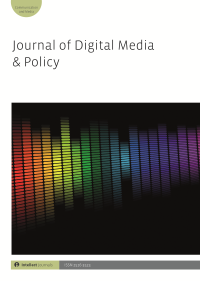
Full text loading...
 , Tordue Simon Targema1
, Tordue Simon Targema1 , Jesse Ishaku1
, Jesse Ishaku1
The struggle for state regulation of the social media in Nigeria today finds expression in the desperate efforts by state actors to foster a negative relationship between the platforms and national security. The ban on Twitter in the country recently is a manifestation of the grand plan to regulate social media operation, which has been on-going since the inception of the current administration in 2015, with the narrative of national security prominently featured as a key justification. Using data derived from secondary sources, this study underscores the struggle for state regulation of the social media in Nigeria and the accompanying implications. Drawing insights from two recent case studies in the country – the 2020 #EndSARS protest and 2021 Twitter ban, the study argues that attempts at social media regulation hinged on national security are counterproductive and, if actualized, will close up available spaces that citizens have at their disposal to engage in critical discourse on pressing national security issues. The study contends that social media are key tools for robust discourse towards facilitating responsive governance in the twenty-first century as experience in Nigeria recently has shown. Against this backdrop, it argues that although Nigeria is confronted with a multiplicity of security challenges at the moment, attempts at hinging this rising tide of insecurity on the social media with the aim of regulating them amount to a misplaced priority and present the platforms as ill-fated scapegoats. Arguments in the study suggest that the basic motivations for social media regulation in Nigeria are repressive in nature and portend damaging implications to the process of good governance and democratic consolidation.

Article metrics loading...

Full text loading...
References


Data & Media loading...

Publication Date:
https://doi.org/10.1386/jdmp_00100_1 Published content will be available immediately after check-out or when it is released in case of a pre-order. Please make sure to be logged in to see all available purchase options.